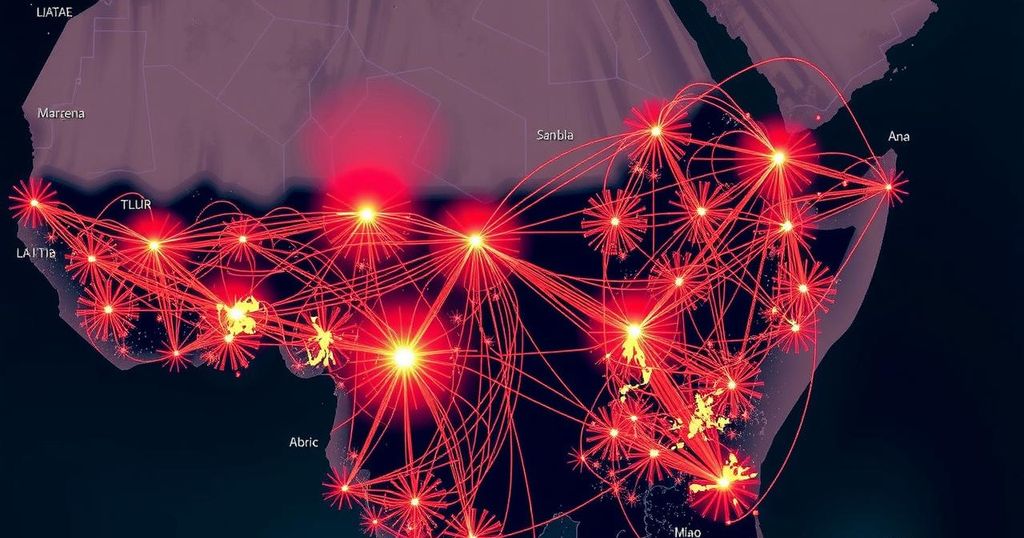Technology
AFRICA, ANGOLA, BOTSWANA, DEMOCRATIC REPUBLIC OF CONGO, DEVELOPMENT, DRC, EQUIANO, EUROPE, GABORONE, GOOGLE, INFRASTRUCTURE, JOHANNESBURG, LIVINGSTONE, MOZAMBIQUE, NAMIBIA, NORTH AMERICA, PARATUS, PARATUS BOTSWANA, PARATUS GROUP, PLUMTREE, PUBLIC-PRIVATE PARTNERSHIP, SADC HIGHWAY, SHAWN BRUWER, SOUTH AFRICA, SOUTHERN AFRICA, TRANSPORTATION, UK, UNITED STATES, US, ZAMBIA, ZIMBABWE
Jamal Walker
0 Comments
Paratus Botswana Launches Fiber Route Connecting Southern Africa
Paratus Botswana is launching the SADC Highway, a fiber route connecting Botswana, Zimbabwe, and Zambia, with a completion date set for February 2025. This 500km project aims to enhance regional connectivity by improving rural network coverage and reducing costs for smaller providers, delivering up to 11 terabits of capacity. It is the fourth fiber route for Paratus in Southern Africa, reinforcing its status as a communications hub.
Paratus Botswana is advancing regional connectivity through the development of a new fiber route known as the SADC Highway, which will establish a link between Botswana, Zimbabwe, and Zambia. This initiative represents a significant stride towards enhancing internet capacity and accessibility, initiating with a 500-kilometer stretch from Gaborone to Plumtree, anticipated for completion by February 2025. It is designed to bolster rural network availability and facilitate lower costs for smaller service providers, with the capability to deliver up to 11 terabits of enhanced capacity. Notably, this route will also improve redundancy for current connections and provide lower latency compared to traditional pathways.
The new fiber route marks the fourth for Paratus Botswana, which previously included links into South Africa and Namibia. Shawn Bruwer, the Country Managing Director, emphasized, “The SADC Highway also represents Paratus Botswana’s fourth fiber route: two into South Africa, one into Namibia, and very soon this new route into Zimbabwe and Zambia. This cements our position in Southern Africa and Botswana as a communications hub not only due to the geographic location but also to the foresight by Paratus in addressing regional needs.” The project has already attracted interest from various operators securing capacity.
Furthermore, the connection to the Equiano subsea cable is expected to catalyze growth and connectivity improvements across the African continent. Paratus operates in multiple African nations, including Angola, the Democratic Republic of Congo, Mozambique, Namibia, South Africa, and Zambia, while offering satellite services across over 35 countries in Africa and extending its reach internationally to the UK, Europe, and the US. Recently, the group has made strides in creating express fiber routes to Europe and establishing cross-border links within Southern Africa, positioning itself as a key facilitator of telecommunications and connectivity across the region.
In summary, the SADC Highway is not only a significant infrastructure project for Paratus Botswana but also a critical link in the endeavour to enhance regional connectivity and economic diversification in Southern Africa.
The SADC Highway project proposed by Paratus Botswana aims to establish a fiber route to enhance connectivity among Botswana, Zimbabwe, and Zambia. By improving internet infrastructure, this initiative will directly impact local economies by providing better access to telecommunications services. The development aligns with Paratus’s broader strategy to expand its network operations across Southern Africa and beyond, reinforcing its commitment to regional connectivity and technological advancement. This project illustrates the increasing importance of robust fiber optic connections in supporting economic growth and development within the region.
In conclusion, Paratus Botswana’s initiative to establish the SADC Highway marks a pivotal step towards improving connectivity in Southern Africa. This project will not only enhance internet capacity and reduce costs for providers but will also contribute significantly to the economic diversification of Botswana by cementing its status as a regional telecommunications hub. The anticipated connectivity improvements and the strategic partnerships formed through this initiative hold substantial potential for stimulating growth across the continent.
Original Source: www.connectingafrica.com




Post Comment